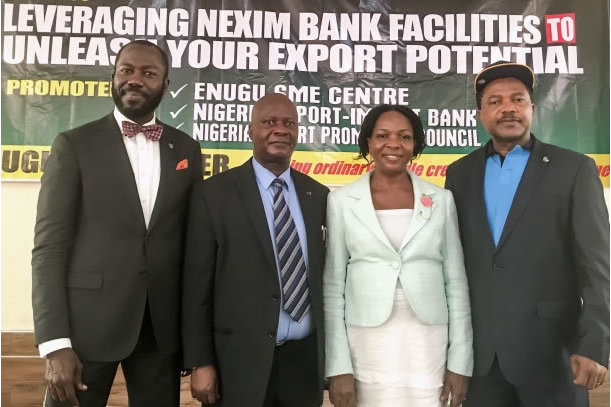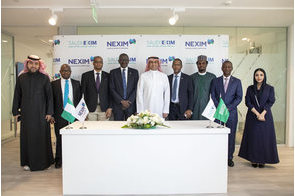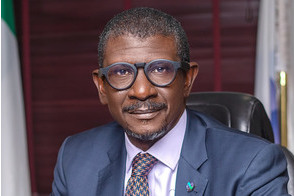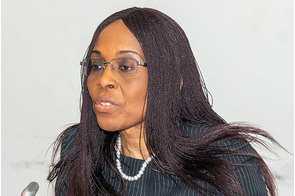Latest News
NEXIM Bank urges SMEs in Southeast, Delta State to access export facilities

News Highlight
The overall aim of the facilities is to lower the costs of Nigerian exporters so that their products can be priced at a level where they can compete with other products around the world.
The Nigerian Export-Import Bank (NEXIM) has called on export-oriented SMEs in the Southeast and Delta States to access the N500 billion Export Stimulation Facility (ESF), and the N50 billion Export Development Fund (EDF) being managed by the Bank. The two facilities were designed to help non-oil export businesses to grow, create jobs, and contribute to the foreign exchange revenue earnings of the country.
This call was made in a statement by the Managing Director and CEO of NEXIM, Abba Bello, at the seminar today in Enugu, which has the theme: “Leveraging NEXIM Bank Facilities To Unleash Your Export Potential.” The seminar was organised by the Bank in partnership with the SME Centre, Enugu.
The ESF and EDF lends at a maximum of 9% interest rate. The funds were designed to redress the declining export credit to SMEs and reposition the non-oil sector to increase its contribution to the country’s revenue generation and economic development. The improved export financing for non-oil exporters will enable them to upscale and expand their businesses and improve their competiveness.
Speaking on behalf of the Bank’s MD/CEO, the Head of the Bank’s Enugu Regional Office, Chinedu Moghalu stated that the funds are being made available to the NEXIM by the Central Bank of Nigeria (CBN) at a time the Bank has decentralized its operations to all the regions of the country for easier accessibility of its products and services to maximize their impacts. According to him, “NEXIM Bank is determined to ensure these funds achieve the desired impact of triggering non-oil export development, growth and economic progress in line with its mandate as the Trade Policy Bank of the Federal Government and the applicable CBN guidelines for the implementation of the facilities.”
The representative of the Enugu State Governor and Special Assistant on SME Development, Anayo Agu, stated at the seminar that the programme has come at the right time.
The transactions permissible for funding under the ESF include, export of goods wholly or partly processed or manufactured in Nigeria; export of commodities and services, which are permissible and excluded under existing export prohibition list; imports of plant and machinery, spare parts and packaging materials required for export-oriented production that cannot be produced locally.
Other businesses eligible under the ESF are export value chain support services such as transportation, warehousing and quality assurance infrastructure; resuscitation, expansion, modernization and technology upgrade of non-oil exports industries. Stocking facility and working capital can also qualify for funding under the ESF.
The N50 billion EDF will be managed by NEXIM and implemented in collaboration with the State governments. NEXIM has earmarked at least N1 billion for each State under the State Export Development Programme component aimed to catalyse and incentivize export investment to promote diversification and industrialization.
Through the Programme, NEXIM Bank will also have a programme for women and youth development, especially to provide support to industries that are involved in apparel and garmenting, cashew production and shea, among others.
The Central Bank Governor, Mr. Godwin Emefiele had stated at the announcing of the funds in December 2017 that the ESF can also be implemented by adapting the Anchor Borrowers Programme framework while promoting the PAVE initiative.
According to Moghalu, “The overall aim of the ESF and EDF is to lower the costs of Nigerian exporters so that their products can be priced at a level where they can compete with other products around the world.”
Related News
Latest Blogs
- AML/CFT regulations and data protection require balance in regulating cryptocurrency
- It's time for honest discussions on Nigeria's security architecture
- Driving economic growth through green transition in Nigeria
- CBN is fighting inflation instead of stagflation
- Why electricity privatization failed (2)
Most Popular News
- IFC, partners back Indorama in Nigeria with $1.25 billion for fertiliser export
- CBN increases capital requirements of banks, gives 24 months for compliance
- CBN settles backlog of foreign exchange obligations
- Univercells signs MoU with FG on biopharmaceutical development in Nigeria
- Ali Pate to deliver keynote speech at NDFF 2024 Conference
- NDFF 2024 Conference to boost Nigeria’s blue and green economies






